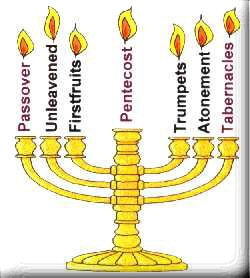| Teacher: Rusty Kennedy Series: Gospels |
Rusty's Notes | |
John 14
27 “Peace I leave with you. My peace I give to you.
- Shalom means wholeness, completeness, health, security, even prosperity in the best sense.
- The world bases its peace on its resources, while God’s peace depends on relationships.
- How do you get that peace?
- Yielding to His life
- It’s not by knowing the Word
- You cannot generate the peace Jesus is talking about.
- The Scripture is not our life… It is Jesus who is revealed through the Word.
- The Spirit uses the Word to give us His peace (John 14:27), His love (John 15:9–10), and His joy (John 15:11). If that does not calm a troubled heart, nothing will![1]
- We have to live by His life.
- You have to know this… but it is not by knowing that you have peace… it is by living your life by another source.
- Christ in you.
- Police Chief Thompson
- There will always be only two responses:
- 1) From the world (based on circumstance) – Condemnation
- 2) From Jesus – Grace, comfort and peace.
- If they only knew what was to come!
- He returned to the Father different than when He came from the Father.
- Came as a prophet but left as a high priest.
- He had to have blood to offer.
- He will return as King!
because the Father is greater than I.
- Not in deity but in the limitations of human flesh.
- Hebrews 10:20 - He has inaugurated for us a new and living way through the curtain (that is, through his flesh)[2]
- Philippians 2:5-8 - 5 Adopt the same attitude as that of Christ Jesus, 6 who, existing in the form of God, did not consider equality with God as something to be exploited. 7 Instead he emptied himself by assuming the form of a servant, taking on the likeness of humanity. And when he had come as a man, 8 he humbled himself by becoming obedient to the point of death— even to death on a cross. [3]
- “Oh, wow!!!!”
30 I will not talk with you much longer, because the ruler of the world is coming. He has no power over me.
- Two things: The evil one is the ruler of the world.
- The evil one has no power over Jesus Christ.
- The safest place to be is “in Christ”.
- The evil knows no Truth – He told the 1st lie.
- No Truth = No wisdom
- No wisdom = No discernment
- Truth possesses wisdom
- With wisdom there is discernment
- Jesus and the evil one can’t even be compared.
- No authority over Jesus.
Get up; let’s leave this place.” [4]
Matthew 26:30 - After singing a hymn, they went out to the Mount of Olives.[5]
14. Hallel: The singing of the Psalms 113-118Current practice:
- These Psalms sung over the 4th cup (cup of praise)
- Modern day addition
- Someone states that God is pleased with how the Seder was performed
- A 5th cup was poured but never consumed
- They agreed to leave it that way until Elijah comes and settles the dispute.
- It is now named the Elijah cup.
- The door is opened to accommodate his return.
THE VINE AND THE BRANCHES
15 “I am the true vine, and my Father is the gardener.
- Who is responsible for producing fruit?
- The gardener.
- Abiding is learning to live your life by another.
- Read your Bible? Go on a mission trip? Praying?
- NO!
- Living your life in Christ. Letting Him doing those things for you.
- You have heard us say you either do things by the Spirit or do things by the flesh.
- You realize you can do “religious things” in your own flesh and it is sin.
- Figure out how to “rest”… a Sabbath Rest is to come.
- Relax, breathe, enjoy Jesus. Abide!
- Take a break from Christianity!
- Just be…
- The branch cannot produce its own life; it must draw that life from the vine.
- It is our communion with Christ through the Spirit that makes possible the bearing of the fruit.[6]
- 1 Corinthians 3:12-15 - 12 If anyone builds on the foundation with gold, silver, costly stones, wood, hay, or straw, 13 each one’s work will become obvious. For the day will disclose it, because it will be revealed by fire; the fire will test the quality of each one’s work. 14 If anyone’s work that he has built survives, he will receive a reward. 15 If anyone’s work is burned up, he will experience loss, but he himself will be saved—but only as through fire.[8]
- Judgment Seat of Christ – Is for believers and is a judgment of their works based upon done by self or “in Christ”.
- It’s the fruit that burns… not the believer.
[1] Wiersbe, W. W. (1996). The Bible exposition commentary (Vol. 1, p. 354). Wheaton, IL: Victor Books.
[2] Christian Standard Bible. (2017). (Heb 10:20). Nashville, TN: Holman Bible Publishers.
[3] Christian Standard Bible. (2017). (Php 2:5–8). Nashville, TN: Holman Bible Publishers.
[4] Christian Standard Bible. (2017). (Jn 14:6–15). Nashville, TN: Holman Bible Publishers.
[5] Christian Standard Bible. (2017). (Mt 26:30). Nashville, TN: Holman Bible Publishers.
[6] Wiersbe, W. W. (1996). The Bible exposition commentary (Vol. 1, p. 355). Wheaton, IL: Victor Books.
[7] Christian Standard Bible. (2017). (Jn 15:1–6). Nashville, TN: Holman Bible Publishers.
[8] Christian Standard Bible. (2017). (1 Co 3:12–15). Nashville, TN: Holman Bible Publishers.


 RSS Feed
RSS Feed